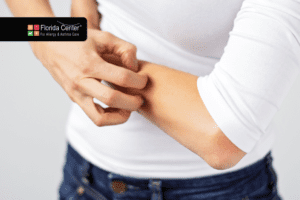
“I think so. My grandmother told me I was allergic to penicillin.”
Doctors hear this answer in the examining room almost daily. Approximately ten percent of patients relate a history of penicillin allergy but after evaluation and testing, ninety percent end up able to tolerate the drug. It is important for all patients being treated with antibiotics to avoid the broad-spectrum antibiotics that are more expensive and cause more severe side effects. By skin testing patients who may not be allergic to penicillin, problems can be avoided. Even a patient testing positive for penicillin can be treated if the drug is given gradually within a hospital setting. This is called desensitization.
Penicillin skin testing is used to test for penicillin allergy that occurs almost immediately after ingestion or injection. The test is safely performed when using proper technique. Serious reactions are extremely rare. It is preferred to test electively rather than when there is an urgent need.
Over time, patients who have been truly allergic to penicillin in the past can lose that sensitivity. Some who show rashes may turn out to have had a viral or bacterial infection, or an interaction between the antibiotic and the bacteria or virus. There are also side effects such as diarrhea or vaginitis which are not “allergic.”
It is very important that skin testing for penicillin be done properly. Two types of techniques are used: (1) scratch/prick tests on the surface of the skin and (2) intra-dermal tests in which a small needle injects testing material under the skin. Any testing procedure must be done correctly with proper controls. It is best to have tests done by an allergist who has proper training for the procedure.
Lastly, tests must be done in an environment where a severe reaction (although rare) can be immediately treated. Researchers differ on the need for an oral challenge the next day because testing skin for penicillin allergy isn’t totally predictive.
Florida Center for Allergy & Asthma Care has 17 convenient locations throughout Miami-Dade, Broward and Palm Beach. To schedule an appointment call 1-877-4-ALLERGY or visit florida-allergy.com.






